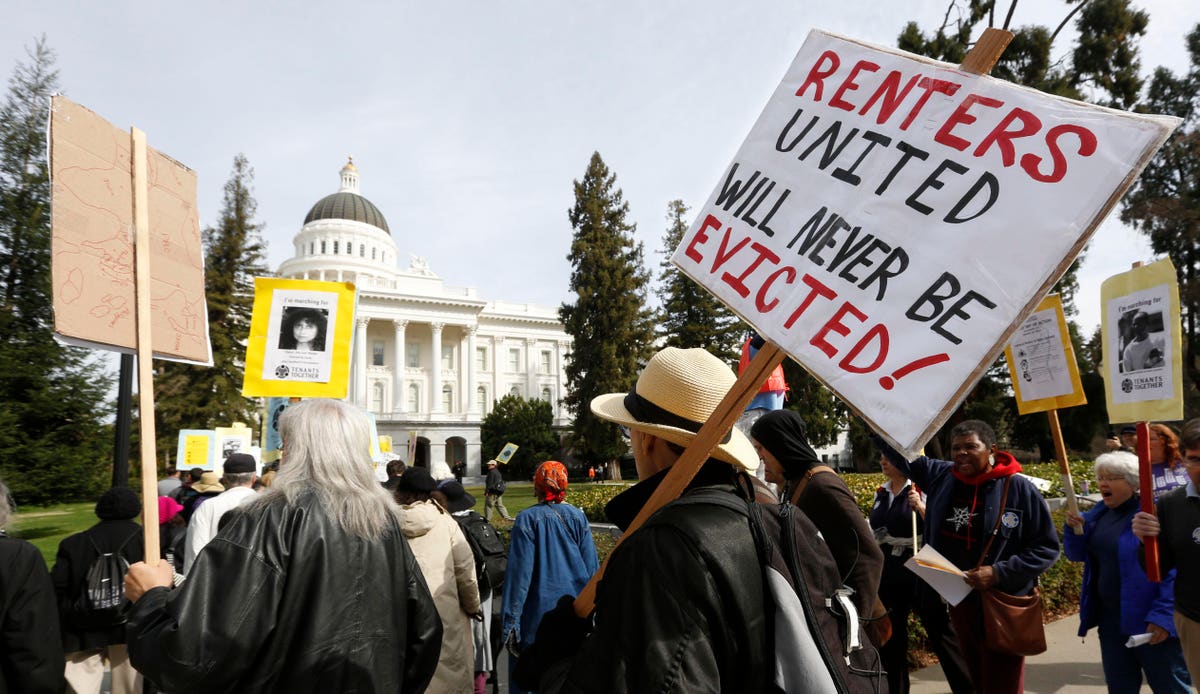The Biden administration announced its interest in creating a renter bill of rights. The Federal Housing Finance Agency (FHFA) just announced a request for input on tenant protections specifically for properties with mortgages backed by Fannie Mae
FNMA
It’s a significant step as the government sponsored enterprises (often called GSEs or, when the FHFA refers to the two agencies, ‘the Enterprises’) have significant power in what they can require though the mortgage purchase process.
The renter bill of rights is a collection of principles that are supposed to ensure better experiences and treatments for renters. They include the following:
- Access to safe, quality, accessible, and affordable housing — including that rental homes should be free of health and safety hazards, well maintained, and rent increases should be reasonable.
- Clear and fair leases — defined terms, rights, and responsibilities, without hidden or illegal fees, excluding mandatory arbitration clauses, with leases written in clear and simple language.
- Education, enforcement, and enhancement of rights — governments should do everything they can to make sure renters know their rights, expansion of the Fair Housing Act to prevent discrimination by source of income, and protection against sexual harassment.
- Right to organize — the right to organize tenants without obstruction or harassment, and recognition of tenant associations by housing providers or management companies.
- Eviction prevention, diversion, or relief —tenants should be able to access help to avoid eviction, ensure the legal process is fair, grace periods for late rent, and sealed eviction records.
What makes the involvement of the two enterprises notable is the position that Freddie Mac and Fannie Mae play in the housing market, particularly the affordable part. They underwrite a huge portion of the mortgages on single-family and multifamily (at least five units of housing) buildings by buying mortgages and then selling them as mortgage-backed securities at a profit to make capital available.
It’s impossible to overstate how important the two are in helping fund the availability of apartments. Although technically private corporations set up by Congress—and which have been in federal receivership for years—they can borrow money from the Treasury and buy mortgages from commercial lenders, guaranteeing principal and interest, which allows housing construction to grow.
“The Enterprises have a responsibility to not only ensure liquidity is available for affordable rental housing, but also to address challenges faced by tenants and property owners in the multifamily housing market,” said FHFA Director Sandra Thompson in a statement. “FHFA is seeking public input to help identify these challenges nationwide, particularly in underserved communities.”
Fannie Mae and Freddie Mac already have requirements for the types of apartment housing that can be made, like what portion has to support rents low enough to be affordable to lower-income people. In other words, the two can reach down through mortgage requirements and affect the process of renting, as a result, what might appear in a rental lease.
It may be an assumption that lower-income individuals and families are most exposed to inequities in rental housing. The U.S. home ownership rate is 66% as of the first quarter of 2023, and those people, while having their own challenges, aren’t subject to actions of landlords.
Those who rent tend to be “young people, racial and ethnic minorities, and those with lower incomes,” according to Pew Research. According to Federal Reserve data as of 2019 (the most recent figures available), the median pre-tax income of all families was $59,050. The average was $106,250, showing that income was heavily top-weighted.
Break that out by owner versus renter status and those who owned had a median income of $77,380 per family versus $35,630 for renters. Look at average incomes and you see $136,410 for owners and $50,490 for renters.
With their focus on lower income, the two GSEs could have a direct impact without an action of Congress or a state or local government. Because the rental housing industry as a whole can’t walk away from them, Freddie Mac and Fannie Mae could put a great deal of a renter’s bill of rights into place for the people most likely to need it without legislation on any level.
Then again, executive action can modify direction just as easily if there were a change of the political party in control.
Read the full article here




